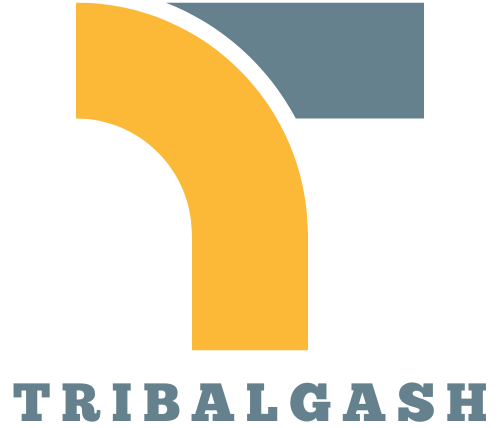In a world where credit cards seem to multiply like rabbits and bills sneak up like ninjas, managing debt can feel like a never-ending game of whack-a-mole. But don’t throw in the towel just yet! There are effective debt solutions that can help turn that financial chaos into a manageable plan.
Imagine waking up without that sinking feeling in your stomach every time you check your bank account. From debt consolidation to negotiation tactics, the right strategies can help anyone regain control and even find a little extra cash for that long-awaited pizza night. It’s time to take charge and laugh in the face of debt—because who said financial freedom can’t come with a side of humor?
Table of Contents
ToggleUnderstanding Debt Solutions
Debt solutions provide methods to manage and resolve financial obligations effectively. Various options exist, allowing individuals to regain control over their finances.
What Are Debt Solutions?
Debt solutions refer to strategies tailored to assist individuals in handling outstanding financial obligations. These methods encompass a range of approaches, including budgeting, debt management plans, and negotiation with creditors. By implementing these solutions, people can reduce stress related to debts and create a clearer financial pathway. Solutions typically aim to lower overall payments, consolidate debts, or negotiate settlements to make obligations more manageable.
Types of Debt Solutions
Several types of debt solutions offer different ways to tackle financial challenges.
- Debt Consolidation: Combining multiple debts into a single loan simplifies payments.
- Debt Management Plans: Professional services help negotiate lower interest rates and create a structured repayment plan.
- Debt Settlement: Negotiating with creditors to pay a reduced amount can provide significant savings.
- Bankruptcy: In extreme cases, filing for bankruptcy might eliminate debts or restructure payments.
- Credit Counseling: Experts offer guidance on budgeting and debt management, providing personalized strategies.
Each solution has unique benefits and drawbacks, making it crucial for individuals to evaluate their financial situations carefully.
Pros and Cons of Debt Solutions
Debt solutions offer strategies for individuals to manage financial obligations effectively. Understanding the advantages and disadvantages helps in making informed decisions.
Advantages of Debt Solutions
Debt solutions provide multiple benefits. They often reduce monthly payments by consolidating debts into one loan. Interest rates may decrease, leading to long-term savings. Additionally, structured payment plans simplify budgeting, allowing individuals to reclaim control over their finances. These solutions may also improve credit scores over time by facilitating timely payments and reducing outstanding debt.
Disadvantages of Debt Solutions
Debt solutions come with drawbacks. Some options, like debt settlement, can negatively impact credit scores temporarily. Fees associated with certain services can accumulate, increasing overall costs. Lengthy repayment plans may extend financial obligations, delaying debt freedom. Additionally, not all solutions guarantee success; individuals may still face challenges despite using them. Understanding these limitations ensures better preparation for the path ahead.
Choosing the Right Debt Solution
Selecting the appropriate debt solution involves careful consideration. Evaluating financial circumstances lays the groundwork for effective decision-making.
Assessing Your Financial Situation
Understanding one’s financial situation is essential. One must begin by reviewing income, expenses, and debts. Gathering current account statements helps clarify obligations. A budget that captures spending patterns reveals areas for potential savings. Calculating the total debt owed offers insight into the overall picture. Identifying monthly payment amounts shows the cash flow required to meet obligations. Establishing financial goals, such as reducing debt within a specific timeframe, creates motivation. Finally, recognizing personal values can guide preferences in choosing a suitable debt solution.
Consulting a Financial Advisor
Working with a financial advisor provides expert guidance. Advisors can analyze individual financial situations with precision. They offer personalized strategies tailored to unique needs. A financial professional equips individuals with tools for effective debt management. Understanding the various categories of debt and potential solutions is crucial. Advisors incorporate experiences from helping others navigate similar challenges. They empower individuals to develop realistic and actionable plans. Utilizing an advisor can lead to enhanced financial literacy and confidence in making informed decisions. Trusting an expert reduces uncertainty during the debt resolution journey.
Popular Debt Solutions
Effective debt solutions can significantly alleviate financial stress. Several methods exist to help individuals regain their financial footing.
Debt Consolidation
Debt consolidation combines multiple debts into a single loan with a lower interest rate. Borrowers often see reduced monthly payments this way. Many opt for personal loans or balance transfer credit cards for this strategy. The simplification of bills makes it easier to manage payments. Individuals should consider loan terms and fees before committing. This method often improves budgeting and provides a clear repayment path.
Debt Settlement
Debt settlement involves negotiating with creditors to reduce the overall amount owed. This approach can result in substantial savings for borrowers willing to settle for less than the full balance. Typically, individuals need to stop making payments and save funds for a lump sum offer. Creditors may view this as an opportunity to recoup losses. However, settling debts may impact credit scores negatively in the short term. Evaluating the long-term effects before pursuing this strategy is crucial.
Bankruptcy
Bankruptcy offers a legal way to either eliminate or reorganize debts. Chapter 7 bankruptcy allows for quick discharge of qualifying debts. On the other hand, Chapter 13 bankruptcy sets up a repayment plan over several years. Individuals often face long-term impacts on their credit reports with either option. Legal advice is essential to navigate the complexities of bankruptcy filings. It’s important to understand how bankruptcy affects future financial decisions and creditworthiness.
Navigating debt can feel overwhelming but it’s entirely manageable with the right strategies. By exploring various debt solutions individuals can find a pathway that suits their unique financial circumstances. Whether opting for debt consolidation or negotiating with creditors each choice offers opportunities for relief and improved financial health.
Taking proactive steps toward debt management can lead to greater financial freedom and peace of mind. With careful planning and possibly the support of a financial advisor individuals can regain control over their finances and work toward a brighter financial future. Embracing these solutions not only alleviates stress but also empowers individuals to make informed decisions that pave the way for lasting financial stability.









